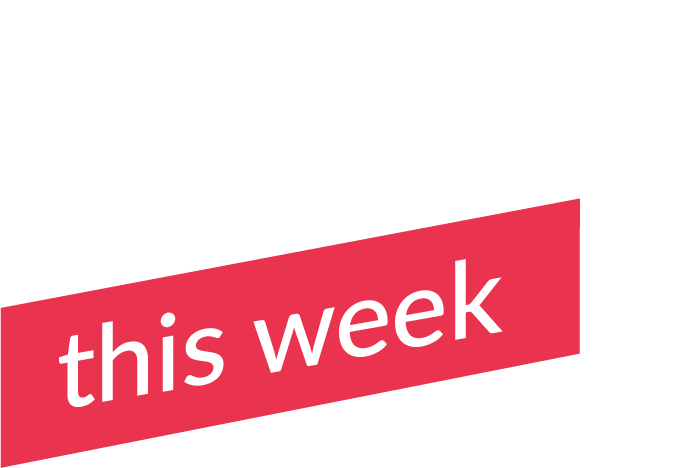Top of mind: Happy Sunday!
Fantastic news from Nigeria this week! The Central Bank launched open banking, set to change the landscape of Nigeria’s fintech industry. Say what you want about the CBN, but this is a big deal.
Elon’s Starlink is losing cool points, and we need to talk about Africa’s equality problem. It’s Women’s History Month!
Let’s get into it.
3 big things
– CBN’s big announcement
– Starlink hates the rain
– Africa has an equality problem
CBN breaks open the banks

The short: The Central Bank of Nigeria approves an open banking regulation.
Trailblazing: Nigeria has become the first African country with open banking regulations. After the Central Bank of Nigeria (CBN) approved the operational guidelines for open banking in Nigeria, they issued a circular outlining them.
Nigeria’s open banking is backed by over 50 banks, consulting firms, and fintech companies, including Fluterwave, Paga, and Sterling Bank. Some Open Banking Nigeria coalition members, like Mono, Okra, and Stitch, have developed creative hacks while waiting for open banking. But the regulation will allow them to access a larger pool of data.
What this means: Open banking would enable financial providers to innovate more accurately by giving them access to data. When users opt-in to open banking, it lets financial institutions, customers, and third parties network their data. Data privacy is essential, and the new regulation aligns with the Nigeria Data Protection Regulation (NDPR).
This regulation also ushers in the country’s new era of credit scores and rating systems.
Final thoughts: We give the CBN some flack for over-regulating the ecosystem, and rightly so. But it is still one of the most innovative central banks in Africa. The possibilities are endless once it goes into full swing. So, a big shout-out to Adedeji Olowe, Founder & CEO of Lendsqr and his team for kickstarting the initiative.
Starlink is slipping

The short: Bad weather humbles Starlink’s victory lap in Africa.
An instant hit: Starlink’s Africa expansion looked like an instant success, with over 600 orders in the first few weeks of its launch in Nigeria. The reviews were coming in, with everyone running speed tests and showing off their satellite-powered internet. So what could go wrong?
When it rains, it pause: Starlink users were quickly exposed to the downside of internet satellite technology. With every shower came service interruptions, and users were forced to activate alternative ISPs.
With Nigeria experiencing rainfall half the year, I’m afraid Starlink users will need an alternative ISP to weather the storm.
Africa tour: Starlink is expanding its service to Kenya in the second quarter of 2023, with rollouts in Zambia, Tanzania, and Morocco before the end of the year. These regions have similar climate conditions as Nigeria. Starlink will need to manage expectations on this rollout.
Final thoughts: For Nigerians willing to part with the crunchy $500+ for the device and subscription, Starlink is still a great choice and much faster than a lot of internet providers on the continent – but this great choice sticks with you half the year, and goes on paid vacay the other half. It’s a struggle.
Africa has an equality problem

The short: Equality remains a glaring issue in Africa’s tech industry.
The gap: The funding gap continues to widen globally in tech. In the US last year, all-women teams raised 1.9% of VC funding, which jumped to 17.2% when the team was mixed-gender. Back in Africa, the numbers are way worse.
According to data from Africa: The Big Deal, between 2019 and 2022, women-only founding teams and solo female founders received only 1% of the funding raised. Instead, 14% went to mixed-gender founding teams. You’ve done the math. The remaining 85% went to male-only founding teams and solo male founders.
Check this: While women raise funds, they get less than men. For example, female-led teams constitute only 12% of deals closed under $1 million and an even lower 4% of deals above $1 million. In 2022, 97% of funding in the continent went to startups with male CEOs.
Sumn ain’t right: Statistically, women have proven to build enduring companies when giving the best VC support over time. The current data shows that male-dominated VC firms historically do not invest heavily in women, so women built their own VC companies to invest in women.
Now, we are witnessing a shift from women being over-mentored to outperforming their male counterparts by 63%, with Africa recording the highest female entrepreneurship rate in the world, at 27%, and women making up 58% of the continent’s self-employed population.
Final thoughts: It’s March again. Another year to celebrate Women’s History Month – so every VC from London to Timbuktu are spotlighting women’s accomplishments. I hope these come with cheques and more cheques and fewer accelerators and workshops.
Thanks for reading! We’d love to hear your thoughts about this week’s issue.
Please respond directly to this email or find me on Twitter @fatuogwuche 🙂
See you next Sunday!

